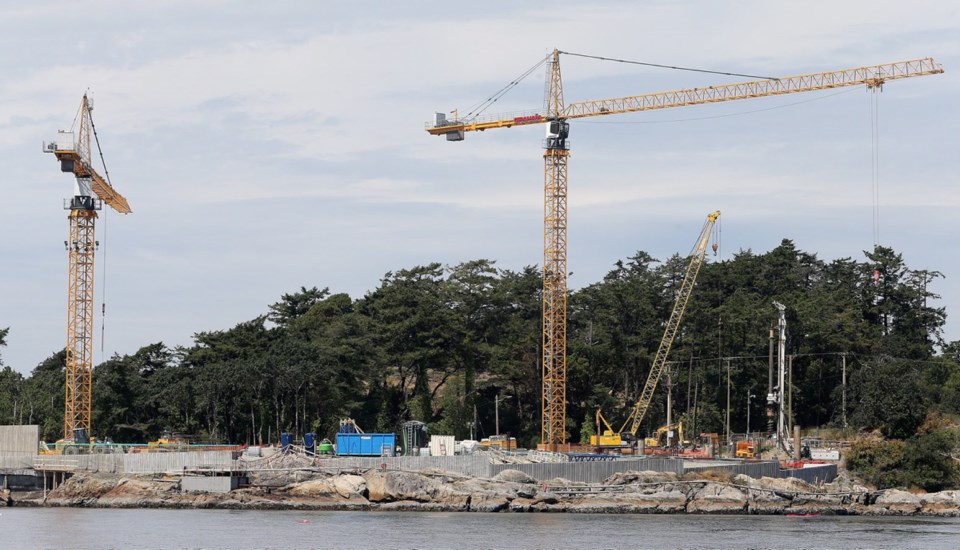It’s unlikely the Capital Regional District’s $765-million sewage-treatment mega-project will be completed on budget, CRD politicians have been told.
“We are feeling concerned that there is a likelihood that we will not be able to deliver the program within the control budget,” Don Fairbairn, chairman of the sewage-treatment project, has told CRD directors.
“We continue to face pressures on cost. Those pressures are becoming more significant for us.”
The extent of the cost overruns is still being determined. Consultants have been hired to help assess the scope of the problem and what mitigating measures might be taken, Fairbairn said.
More definitive cost estimates are expected by mid-March.
Esquimalt Mayor Barb Desjardins, who chairs the CRD’s core area sewage committee, said without knowing the magnitude of the potential overages, it would be premature to comment.
“We all know that construction costs have escalated substantially, so it’s really almost not much of a surprise to hear that they’re feeling that there may be some pinch there,” Desjardins said.
Victoria Mayor Lisa Helps, the committee’s vice-chairwoman, called the potential cost increase “a reality check” and “the price you pay for a strong economy.”
“It has nothing to do with the project going off the rails or anything, it’s just the cost escalation for construction, which the whole industry is facing,” Helps said.
“Steel is expensive and labour is expensive, and if you talk to any private sector developer in town or in the region, they’ll tell you the same thing.”
Senior governments have committed up to $459 million to the project with local taxpayers responsible for $306 million. Local taxpayers are responsible for any additional costs.
Fairbairn said the board has seen increases in the costs of material and labour, and increases related to design changes to “reflect input from stakeholders” and through a clearer understanding of geotechnical risks.
Also a factor in awarding contracts is the fact the project is subject to a 2020 federal deadline for completion.
“The costs of some of these program elements is higher because we do not, in fact, can’t, take the risk of a particular project element being on the critical path of the program delivery and causing us to fail to commission before Dec. 31, 2020.”
Fairbairn said the project board is taking steps to mitigate costs and has hired consultants to advise on what steps can be taken.
It has hired Ernst and Young to better understand the basis for cost escalations to date and costs associated with work that is yet to be contracted.
KWL Consulting Engineers has been contracted to give an independent estimate of costs for remaining project elements, which include the Currie pump station, the Currie forcemain, the Trent forcemain and the West Coast interceptor.
“That will enable us to understand better, relative to the funding we have available, if there is a prospect of delivering the entire project within the $765-million control budget or having to pay more,” Fairbairn said.
KWL is also to report on the “utility value” of project elements that have not been contracted yet to determine if all of it is necessary, he said. “As a consequence of that study we may or we may not, I don’t know, come to the conclusion that some of that infrastructure could be deferred.”



